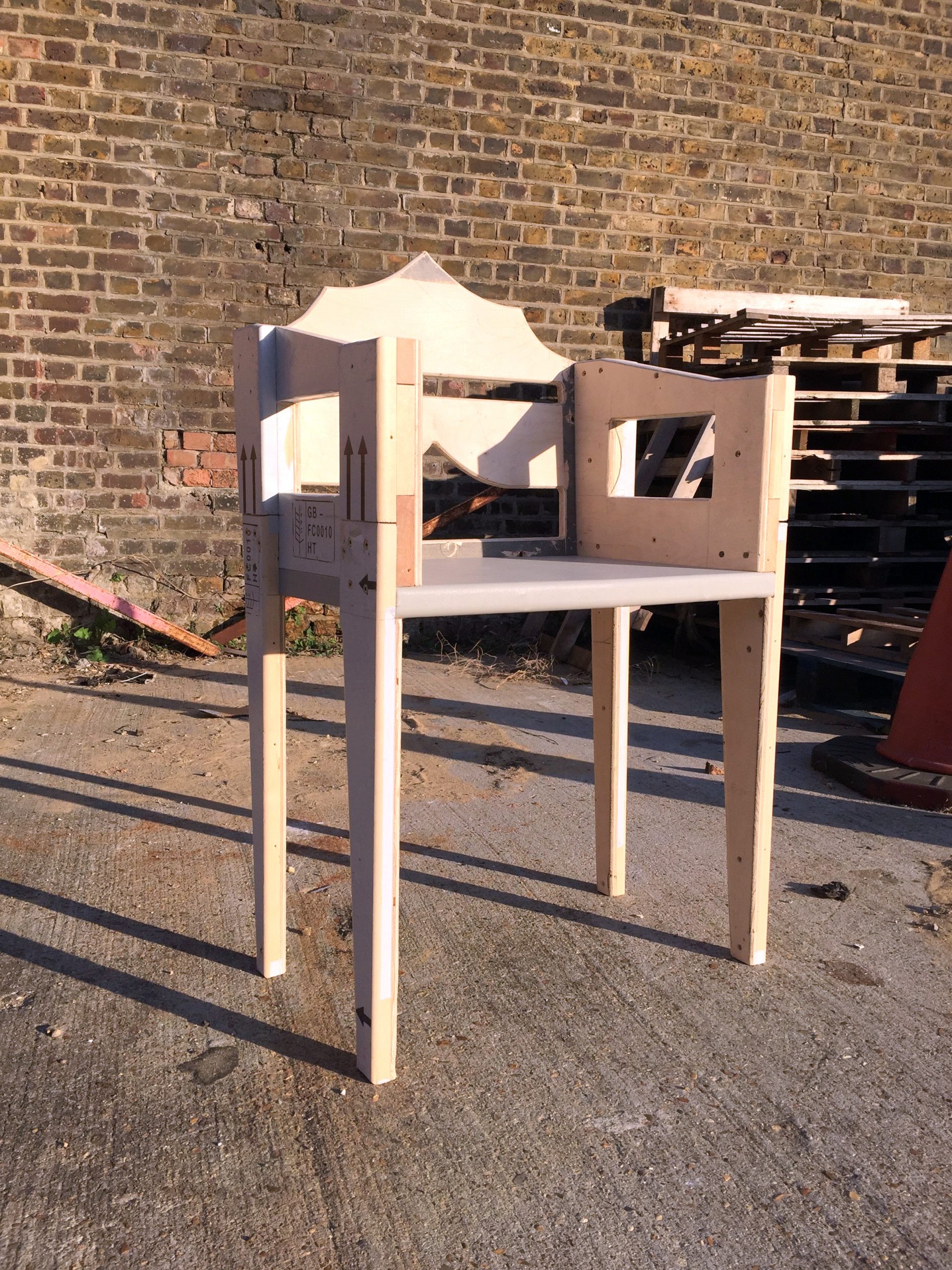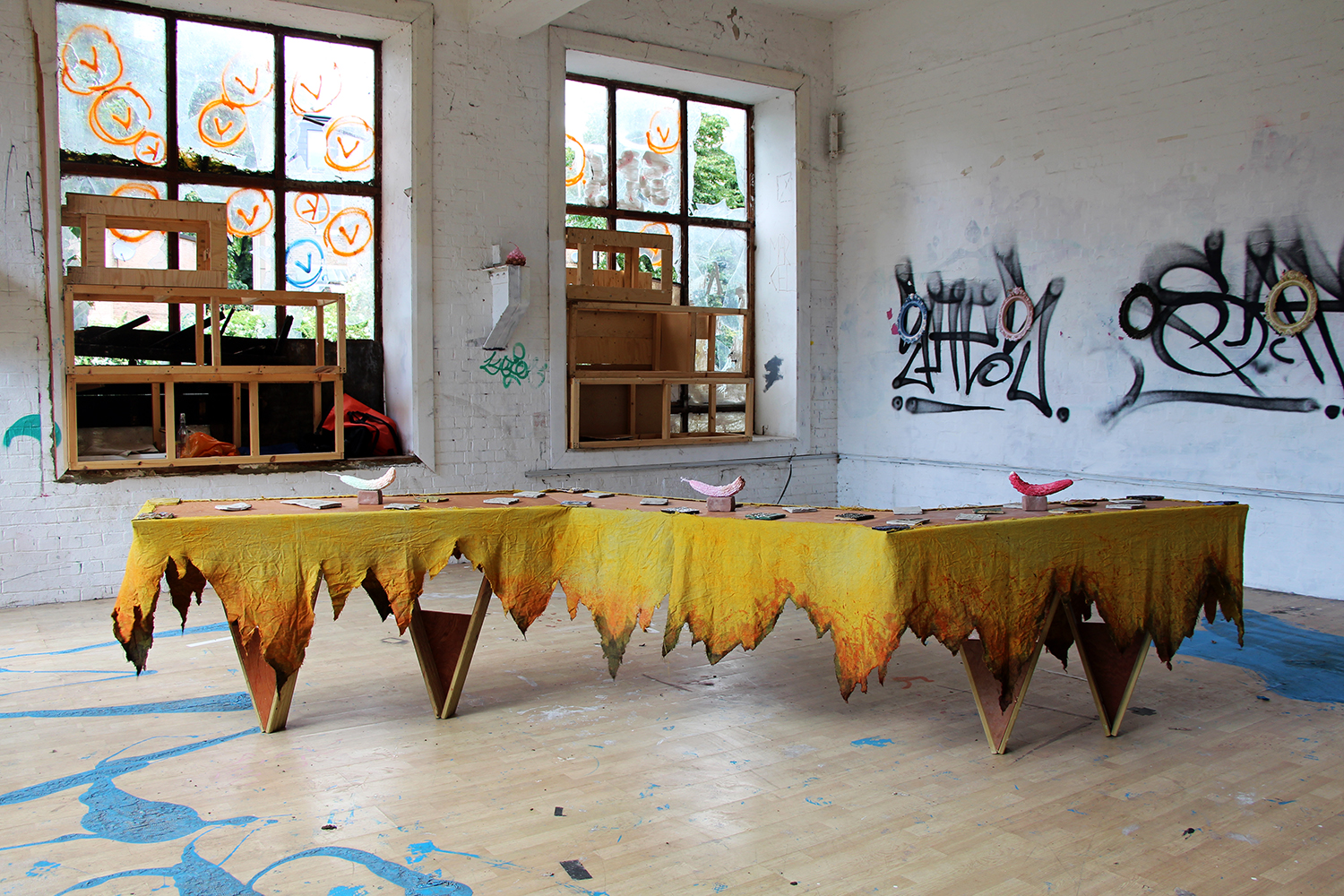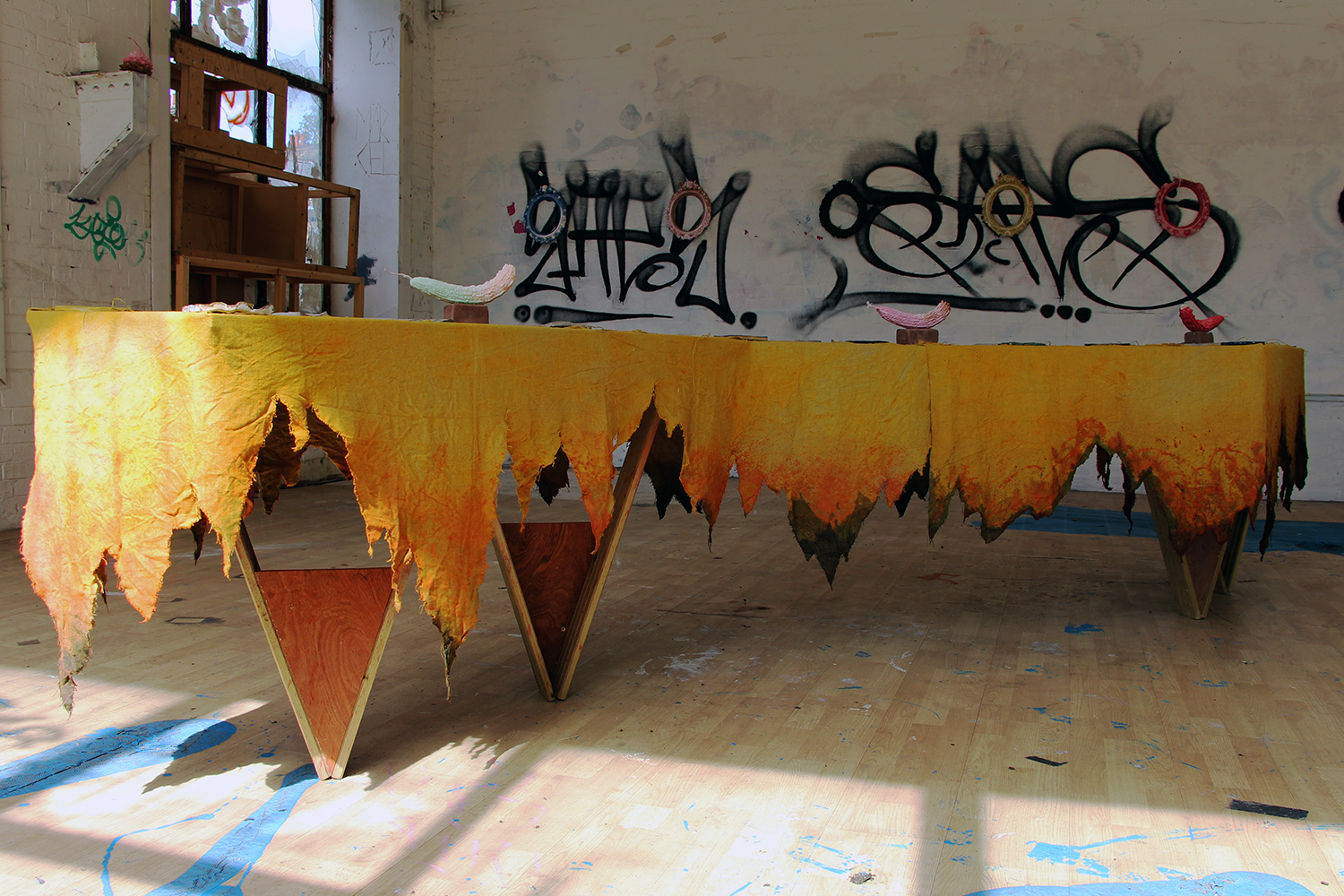Eco-furniture atelier

Useful information
- Team members
- Aleksandr Tishkov Ola Hincapie
- Country
- Portugal
- Keywords
- upcycling sustainability zero waste eco furniture future
Short Description
Upcyling discarded furniture objects into new interior and outdoor pieces.
Detailed Description
Recently, I’ve set up an eco-furniture atelier which is still in the beginning of its existence, but which pursues sustainable solutions in furniture making. The practice that I focus on is called upcycing. Upcycling is the way to transform an old item into new functional object. In my case, I use discarded, vintage or broken furniture pieces to later turn them into new objects for both interior and outdoor spaces. The concept of the atelier was born out of necessity to respond to the growing concerns regarding the plant’s health. I believe that the practice of upcycling can bring us closer to circular economy as well as to help promote sustainable creative solutions.
Project Details
- Does your design take social and cultural challenges and human wellbeing into consideration?
By repurposing discarded furniture pieces, we try to look into potentialities of things we possess that sometimes don't serve us their functionality. Upcycling is relatively a new practice that enables us to rethink and reimagine commercial and industrial practices, that predominantly based on constant buying and consuming material possessions.
In a long run, eco-furniture atelier has a positive impact on the environment both on local and global scales, by reducing the waste and reversing the process of the well-known practice: consume-discard-buy-consume, and rather turning it into consume-upcycle-consume.
- Does your design support sustainable production, embodying circular or regenerative design practices?
The project aims to keep unwanted, non-functional furniture objects from being dumped in landfill. Instead giving them a new life, and perhaps also a new function. Being guided by this objective, we try to reduce the amount of discarded objects in a city and its periphery, by keeping them in use, in other words contributing to circular economy.
- Does your design use principles of distribution and open source?
The principle of upcycling is globally known and can be applied to any business model. In case of our project, we work with materials and resources that available locally (London, UK; Lisbon, Portugal) for the locals (United Kingdom and Portugal). This helps us to keep our carbon emissions to a minimum. Nevertheless, we make sure that the products that come out of our workshop are available globally.
- Does your design promote awareness of responsible design and consumption?
Working with furniture means dealing a lot with wood industry products. Our project is based on what is available in terms of materials and resources. This means that our practice doesn't require any additional resources, meaning that our production is relatively close to zero waste.
Being aware of the impact of large industries on the environment, we try to minimise the waste of the production and processes of our project to a minimum. This, we hope helps tackling deforestation crises on a local and global scales.
Images


